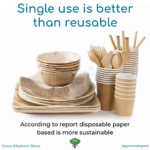Most organisations have a Product which they provide, sell or deliver to their consumers. This function looks after the lifecycle of the Products that are designed, created, produced, maintained and sold. There may be a thin line between Products and Services but the Products function tends to apply to both.
In this article…
- What is the Products Function
- Common Activities in the Products function
- The Primary Acts and Regulations governing Products
- Available Standards for Products
- Where to go for authoritative Guidance
- Valuable Skills for those performing the Products function
- The use of 3rd parties to provide the Products function
What is the Products Function?
There are two definitions of ‘Product’ to consider before discussing this function:
- ‘an article or substance that is manufactured or refined for sale’. An organisation may produce a physical item to sell. This could be a clock, vehicle, pasty, wheelbarrow, well anything really!
- ‘a thing or person that is the result of an action or process’. A company could also create a product by undertaking a process, such as building a house. So the house is a product but the builder sold the service of house-building.
Perfection has to do with the end product, but excellence has to do with the process - Jerry Moran
Common Activities
There is a number of recognised product lifecycle models. They vary, but tend to include the following activities:
- Creation, broken down into:
- Idea Generation & Screening
- Concept Testing
- Business Analysis
- Product Design
- Market Testing
- Production
- Introduction to market, leading to:
- Growth
- Maturity
- Decline
- Revision, refinement and enhancement
Primary Acts and Regulations
The primary legislation which governs Products is the Consumer Rights Act.
The Health and Safety Executive provides a UK view on their website under UK law on the design and supply of products.
Due to the diverse nature of this Products function, there are a bewildering number of product related pieces of law to consider. A search of the UK government site produces this list.
Available Standards
The vast array of Products prevents a proper analysis in this article. However there are a couple of product quality certification schemes which warrant a specific mention:
Authoritative Guidance
A good source in information is the UK Government’s Office for Product Safety and Standards
There are other UK Government organisations that deal with General Product safety for specific areas, such as:
- Food – Food Standards Agency (FSA)
- Drugs and Medical Devices – Medicines and Healthcare products Regulatory Agency (MHRA)
- Vehicles and Vehicle Parts and accessories – Driver and Vehicle Standards Agency (DVLA)
- Workplace Products – Health and Safety Executive (HSE)
Valuable Skills
The skills required by those involved in Products can be broken down into 3 areas:
Individual Skills
- Creative – Converting ideas into viable products
- Researching – Collecting and using data effectively and integrating that learning into product discussions
- Methodical – Ensuring that all steps of testing safety and usability are followed, keeping good records of results
Team Skills
- Business Conscious – Understanding the way the business works and how a products can affect its success
- Communicative – Being able to collectively create a viable product through all forms of communication
Organisational Skills
- Ethical and professional – Acting with honesty, integrity, maintaining required standards.
- Quality-focused – Focused on producing the best product to meet the defined requirements
- Market-aware – Producing products that fit an identified and viable market segment. Able to effectively use consumer feedback
- Legal-Minded – Conscious of the legislative landscape of the products under development and committed to producing compliant outputs
Service Providers
Due to the sensitive nature of developing an idea into a viable product, many organisations keep as much of this in-house. However, there are any number of stages, with good contracts and agreements in place, which can be undertaken by third parties. Areas such as prototyping, design, human interface and production are prime candidates for using other service providers.
Conclusion
If you are creating and selling a physical product then you need to pay special attention to this function. Above all else, make sure you have taken reliable and comprehensive advice.





